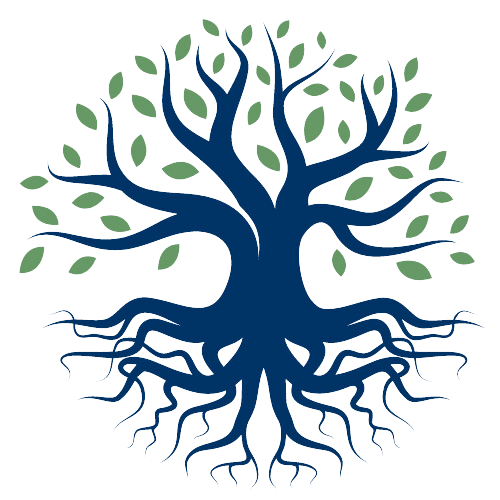The journey to self-awareness is a deeply personal and transformative process. One of the most effective tools to facilitate this journey is the use of self-awareness journal prompts. These prompts serve as a guide, helping us to delve deeper into our thoughts, emotions, and behaviors. They enable us to maintain and measure our self-awareness, ultimately leading to personal growth and happiness.
By regularly using these prompts in our journaling practice, we can maintain a consistent focus on self-awareness. This practice helps us to identify patterns in our thoughts and behaviors, which is a crucial step in measuring our self-awareness.
For example, a prompt such as “What made me happy today and why?” can help us to identify the things that bring us joy. Over time, we may notice patterns – perhaps we feel happiest when we’re outdoors, or when we’re helping others. This insight can guide us in making decisions that align with our values and contribute to our overall happiness.
Understanding Yourself:
- What are my core values?
- What are my biggest strengths and weaknesses?
- What are my biggest fears and insecurities?
- What is my love language?
- What are my attachment styles?
- What is my personal definition of success?
- What is my relationship with time and money?
- What are my physical and emotional needs?
- What are my personal boundaries?
- What are my coping mechanisms for stress?
- What is my learning style?
- What is my preferred method of problem-solving?
- What are my long-term goals and aspirations?
- What is my purpose in life?
- What gives my life meaning?
- What am I most proud of?
- What is my biggest regret, and what did I learn?
- How would my best friend/worst enemy describe me?
- What are my biggest sources of joy and frustration?
- What are my spiritual beliefs and how do they influence me?
- Describe my ideal day/week/year.
- What is my ideal future self?
- What is my relationship with my family?
- What is my relationship with my friends?
- How do I handle conflict?
- What are my communication styles?
- How do I handle criticism?
- How do I show and receive love?
- What is my self-esteem like? How can I improve it?
- What is my body image? How does it impact my life?
- What are my daily habits? Which ones are helpful, which are harmful?
- What is my relationship with technology? Is it healthy?
Exploring Your Emotions:
- What emotions am I feeling right now?
- Describe a time you felt intense joy/sadness/anger/fear.
- What triggers my anger or frustration?
- How do I typically deal with sadness or disappointment?
- What emotions do I avoid or suppress?
- How do my emotions affect my behavior?
- What is my emotional range? Are there emotions I rarely feel?
- Am I comfortable expressing my emotions? Why or why not?
- Do I have emotional boundaries? What are they?
- How do I regulate my emotions? What techniques work best?
- How do I identify the root cause of my emotions?
- What are my emotional needs in relationships?
- How emotionally intelligent am I? What can I do to improve?
- How do my emotions influence my decision-making?
- Are my emotional responses proportionate to the situation?
- What are my emotional triggers in relationships?
- How do I communicate my emotions effectively?
- What role do past experiences play in my emotional responses?
Examining Your Thoughts:
- What are my recurring negative thoughts?
- What is my inner critic saying today?
- How do my thoughts impact my emotions and actions?
- What are my cognitive biases?
- How can I challenge negative thinking patterns?
- What is my self-talk like? Is it supportive or critical?
- How do I improve my self-talk?
- What are my limiting beliefs? How are they holding me back?
- What are my strengths-based thoughts? How can I amplify them?
- How do I practice mindfulness to observe my thoughts?
- How does my thinking style impact my creativity?
- How does my thinking style impact my problem-solving?
- Do I overthink situations? If so, how can I mitigate this?
- How accurate are my assumptions? How can I check them?
- What are my beliefs about myself and the world?
- How do my beliefs influence my decisions and actions?
Reflecting on Your Relationships:
- What are my most important relationships?
- What are my needs in relationships?
- What are my strengths and weaknesses in relationships?
- How do I handle conflict in my relationships?
- How do I communicate effectively with others?
- What kind of friend/partner/family member am I?
- What are my expectations in relationships? Are they realistic?
- How do I handle disagreements or disappointments in relationships?
- What are my relationship patterns? Are they healthy?
- How do I express appreciation and gratitude in my relationships?
- How do I manage boundaries in my relationships?
- Which relationships bring me joy and which ones drain me?
- How can I improve my relationships?
- What are my relationship goals?
- How do I choose my friends and romantic partners?
- What role does trust play in my relationships?
- How do I handle jealousy or possessiveness in relationships?
Action and Behavior:
- What is one thing I can do today to improve myself?
- What is one habit I want to change?
- What steps can I take to achieve my goals?
- How can I be more assertive?
- How can I improve my decision-making skills?
- How can I improve my time management skills?
- How do I handle stress and pressure?
- How do I respond to setbacks and challenges?
- What are my daily rituals and routines? Are they effective?
- How can I improve my productivity?
- How do I balance work, rest, and play?
- How can I take better care of my physical health?
- How can I improve my mental and emotional health?
- What are my procrastination triggers? How can I overcome them?
- How can I be more mindful in my daily activities?
- How can I learn from my mistakes?
- How can I be more present in the moment?
- What are my strengths in dealing with conflict?
- How can I improve my non-verbal communication skills?
- What are my physical and environmental needs to feel calm and relaxed?
Conclusion
The journey to self-awareness is a deeply personal and transformative one. Self-awareness journal prompts are a powerful tool on this journey, offering a mirror to our inner selves and a guide to personal growth, happiness, resilience, and success. They can enhance our mental health, improve our relationships, and provide valuable guidance.
We encourage you to integrate self-awareness journal prompts into your daily routine and experience the transformative power they hold. And remember, the journey to self-awareness is not a destination but a continuous process of growth and discovery.


Leave a Reply